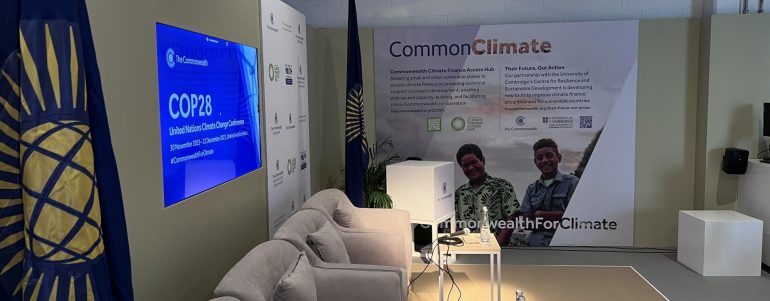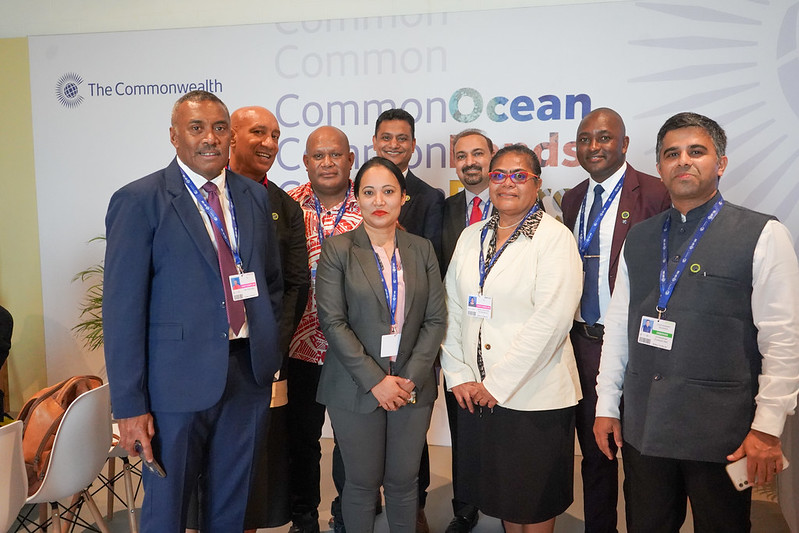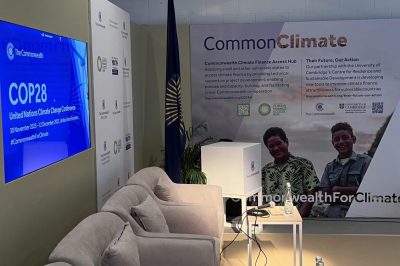The 28th Conference of Parties (COP28) has begun in the United Arab Emirates, with heightened awareness of the critical need for transformative climate action. Consistent with its enduring dedication to mitigating climate change, the Commonwealth proactively participates in the worldwide climate policy discourse.
The Commonwealth, consisting of 56 member countries spanning diverse regions and cultures, plays a significant role in global climate dynamics. With a startling 60% of the population under 30, these countries are home to 2.5 billion people. This demographic emphasizes the significance of sustainable development and the Commonwealth countries’ responsibilities in addressing climate change. The article delves into essential facts and numbers, thoroughly examining Commonwealth nations’ climate effect.
Despite their large population and geographical spread, Commonwealth countries contribute just 15% of global carbon dioxide emissions. This statistic is significant given the group’s large share of the worldwide population. This comparatively low carbon footprint has been made possible by these countries’ dedication to sustainable practices, innovations in renewable energy, and an emphasis on lowering carbon emissions.

Commonwealth countries play a critical role in global efforts to stop deforestation, with a colossal 8.8 million square kilometers of forest land. Sustainable forestry practices and conservation programs within these countries are crucial for preserving biodiversity, sequestering carbon, and minimizing the effects of climate change. Monitoring and supporting these initiatives will be valuable in ensuring the survival of these rich ecosystems.
A startling 45% of the world’s coral reefs are found in Commonwealth nations, highlighting their importance to marine life worldwide. The health of these ecosystems matters not only for the countries that directly host them but for the entire world. Furthermore, the vulnerability of the 49 Commonwealth countries surrounding the ocean, including 25 small island developing states, needs immediate and concerted action.
These small island developing states in the Commonwealth are particularly affected by climate change. These countries’ survival threats include deteriorating maritime ecosystems, rising sea levels, and extreme weather. The Commonwealth is addressing these critical states’ particular issues through coordinated initiatives such as climate resilience programs, infrastructure development, and international partnerships.
Recognizing small states’ vulnerability, the Commonwealth also actively reduces catastrophe risk. Initiatives such as the online portal for DRR financing facilities aim to provide small states with faster and less complicated access to financing, assisting them in managing natural catastrophe risks, especially climate change-related ones.

The Commonwealth Blue Charter, an agreement among all 56 member countries, focuses on actively working on ocean-related concerns and sustainable ocean development. Champion countries lead Action Groups on critical matters like coral reef protection, marine plastics, and ocean and climate change.
Recognizing the importance of collective action, the Commonwealth has launched various programs and partnerships to combat climate change. Collaboration activities are focused on knowledge sharing, technological transfer, and assisting member states in implementing sustainable practices. For example, the Commonwealth Climate Money Access Hub (CFAH) helps countries obtain climate finances to fund mitigation and adaptation programs. The CFAH, supported by Australia, the United Kingdom, and Mauritius, has mobilized significant funds and provided assistance to countries like Antigua and Barbuda, Barbados, Jamaica, Namibia, Mauritius, Eswatini, Tonga, and Vanuatu.
Moreover, innovative projects like CommonSensing—a partnership involving Vanuatu, the Solomon Islands, and Fiji—that enhance decision-making and climate resilience via satellite remote sensing technology are noteworthy.
Youth engagement is a powerful instrument for promoting climate action, with over 60% of the Commonwealth’s population aged 29 or under. Commonwealth countries are investing in educational programs, awareness campaigns, and platforms that educate young people to become advocates for environmentally friendly practices. Harnessing the enthusiasm and inventiveness of youth is critical for attaining long-term climate goals.
Also Read: Highlights from the 10th trilateral Foreign Ministers’ meeting
The Commonwealth Youth Climate Network empowers young people to combat climate change by campaigning for policies that have a measurable impact on youth well-being. To assist governments in promoting green and blue growth through youth entrepreneurship, the organization has released a policy toolkit in collaboration with UNCTAD to facilitate the effective implementation of the Paris Agreement.
Finally, the Commonwealth’s commitment to climate change is demonstrated by its low carbon footprint, vast forest conservation activities, and considerable contributions to global coral reef ecosystems. However, difficulties persist, especially for small island developing states facing severe dangers. The Commonwealth is positioned as a significant actor in the global fight against climate change because of its collaborative endeavors and focus on young people. As environmental deterioration worsens worldwide, the Commonwealth’s role is becoming increasingly crucial in ensuring that everyone has a robust and sustainable future.
International Relations Scholar interested in National Security strategies, with a good focus on Geo-Politics, Foreign Policy, and Public & Cultural Diplomacy.







